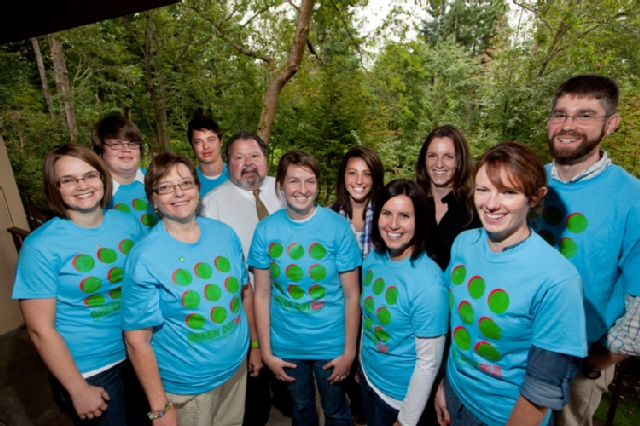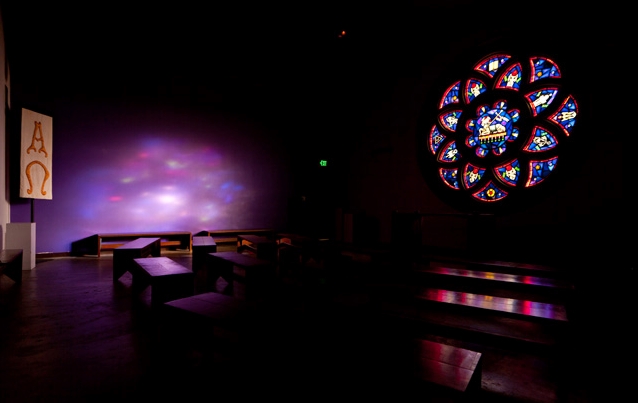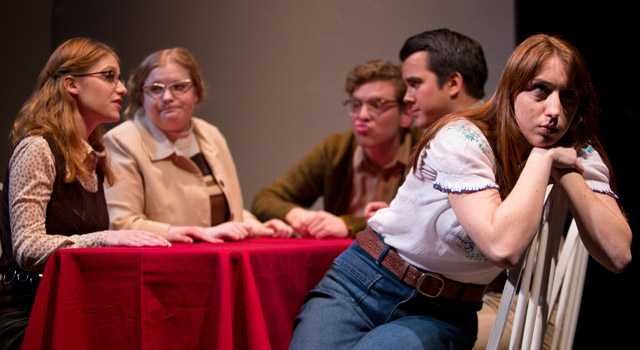Page 121 • (1,427 results in 0.059 seconds)
-
applied). And we didn’t expect to get the money that would let us buy something this powerful.” This grant comes on the heels of another grant from the NSF in early 2007, where the department received $181,000 to buy an atomic force microscope. The spectrometer itself, which arrived this spring, is not much to look at – even the enthusiastic team of professors Craig Fryhle, Dean Waldow, Myriam Cotten and Neal Yakelis admit this. It looks, from the photographs, like a rather large thermos surrounded by
-
grease trap in the drains in most fast food and industrial food companies, he said. Think the grease from the plates or that comes off through the dishwasher. “It’s really disgusting grease,” he said. But it’s obvious he considers it an opportunity. “Obviously, we’re not trying to solve the world’s problems,” Clifford said. “But we are trying to take grease out of the landfills. We believe sustainability is critical to us. And we want to create a fuel for regional use.” Read Previous Tutoring program
-
minute’s worth of dialogue for us to change (the set),” Rud said. After all those changes, the supers still have to switch back into their costumes for curtain call, and then back into their blacks to clean up the stage and reset it for the next performance. “By the time it’s all said and done, I have usually been there for five or six hours,” Rud said. Rud is looking forward to the final weekend, hoping to tighten up his work and avoid the previous slip ups. As for acting anxiety, the real butterflies
-

grant three or more times, according to statistics from the Department of Justice. Hughes credits the continuation of support to the amazing work the Women’s Center continues to do in the community. “That sets us apart,” she said. “It says we have a really strong program.” The grant is funded through the Department of Justice. The Women’s Center boasts a total of approximately $750,000 overall funding from this specific grant program, including the funding received in 2005 and 2007. Thanks to this
-

October 25, 2010 The Tlingit tribe wait to come ashore during the Ceremonial Landing and the commencement of Tribal Journeys. We sat for hours, baking in the sun while droves of exuberant people in lavish regalia requested landfall. (Photos by Theodore Charles ’12) My Tribal Journey By Theodore Charles ’12 Every morning in Neah Bay, Wash., the cold fog would sweep through our camp and shake us from our sleep as we trundled across the grounds of the Makah Cultural and Resource Center for the
-

of the School of Arts and Communication. “The new studio theater will enable us to offer additional student-based performance space,” Bennett said. “As a student-based space, more senior capstones, performances, scene and lighting designs, and plays will be produced.” “Because of this space becoming stronger, the students will have a lot more opportunity and they’ll have a home,” Clapp added. “This new space will provide our students with a central campus location,” Bennett said. “This will be a
-

partner, operates Raw Space, a cross between a professional music venue and community center in downtown Ellensburg, Wash. The business, the largest venue of its type in a 90-mile radius, is an initiative of the Elmira Arts Project, whose aim is to promote historic preservation, cultural interaction, economic growth and creating just a plain great place to spend time at. “It’s been a really big success for us,” Howell said. A wide array of events take place at Raw Space, including comedy, rock and
-

needed.” A related inquiry pushed Sorenson further asking, “How do you be that character for two hours and how do you get back to being yourself emotionally?” Sorenson was locked and loaded, replying, “You can only emote feelings you’ve felt, and that’s not about the plot, it’s about the longing, how lost he feels. When you break it down to their emotions, you’re dealing with facets of us all.” Here Schultz jumped in adding, “You explore facets of your own self, and your baggage and struggles. That’s
-

extremely gratifying. “Winning a National Broadcasting Society Award is great news for us,” said Huntington. “My fellow filmmakers and I worked hard to make the documentary thought-provoking and influential. So it’s a great feeling to be acknowledged with such a prestigious national award.” “It is great having all of our hard work be recognized,” said Scroger, chief videographer and editor of the film. Tapped Out focuses on water-related issues across North America and investigates how pressures on
-

Forbis ’14, Jessica Resop ’14 and Jessica Reid ’15—beat eight other teams at the Beta Alpha Psi 2014 Regional Best Practices Competition in Portland April 11-12, including teams from the University of Washington and Oregon State University. Now PLU’s team will represent the Northwest region in the national competition in Atlanta Aug. 6-9. Resop credits perseverance—an excellent best practice—for the win. “We were a small school, but that didn’t scare us because we had the will and determination to
Do you have any feedback for us? If so, feel free to use our Feedback Form.


